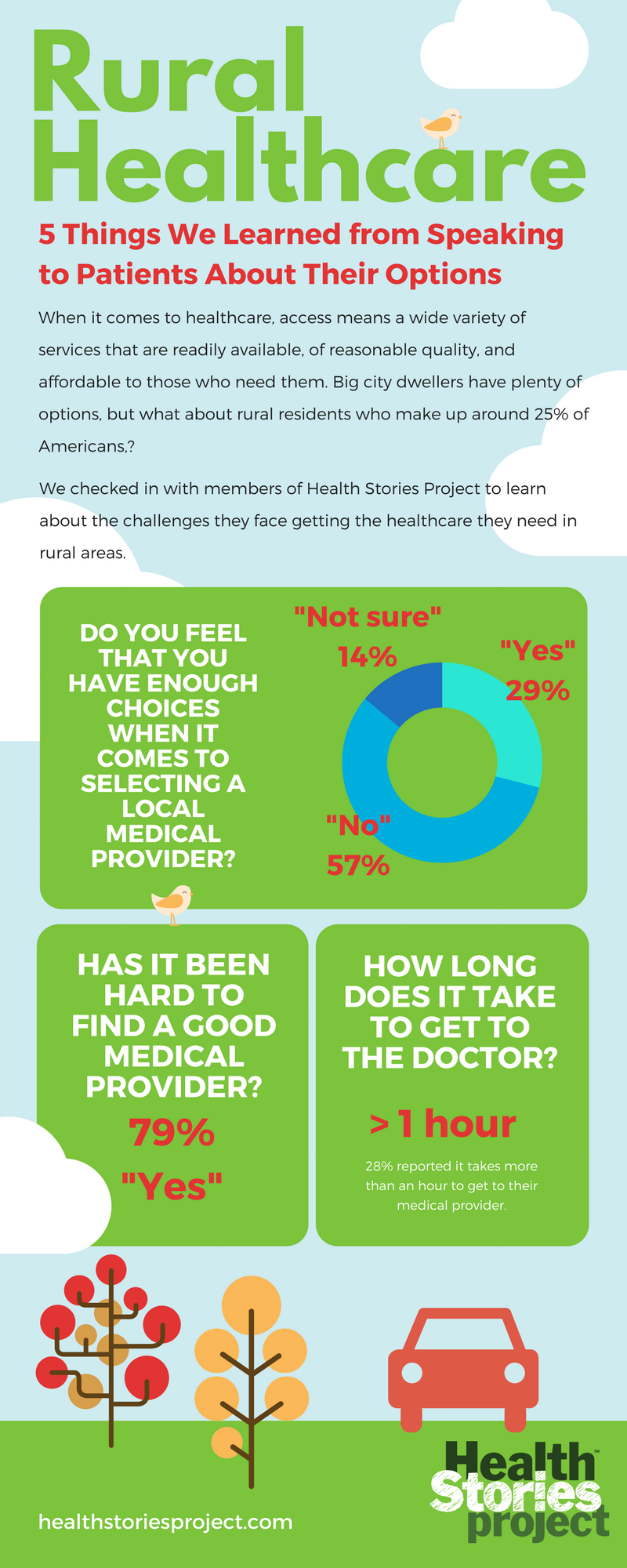When it comes to healthcare, access means a wide variety of services that are readily available, of reasonable quality, and affordable to those who need them. Big city dwellers have plenty of options for everything from a Functional Medicine Doctor, dental checkups and mental health care to emergency visits and the latest, greatest cancer treatments. For rural residents, who make up around 25% of Americans, that often isn’t the case. It might be worth seeing if you can get on something like a Medi-Cal no-cost or low-cost health coverage program through IEHP where you live in order to get all the benefits of doing so.
We checked in with members of Health Stories Project to ask about the challenges they face getting the healthcare they need in rural areas. Not all people face difficulties though, especially those whose providers work alongside places like Coronis Health (find more details here) who seemingly offer the best care possible for their patients. As such, learning the hurdles that people face can help to make the healthcare journey better in the future. So without further ado, here’s what they had to say:



1. When selecting a local medical provider, choices are limited and getting an appointment can take weeks.
Only 29% of those we asked said they had enough choices when it came to selecting a local medical provider. It can be difficult for people to get appointments with doctors, however, it could be made much easier if more medical practices considered using medical appointment scheduling software to allow patients to find an available slot that works for them. This method has already been used by a few healthcare companies to try and make it easier for patients to book an appointment. Currently, quite a few people are unhappy with the availability of their doctors. Many people told us:
“Getting an appointment in a fairly quick amount of time [is rare]. Usually it requires having to wait 2 weeks.”
2. Finding a qualified specialist can be difficult and will likely require travel.
79% said it has been hard to find a good medical provider.
“There is a lack of psychiatrists and therapists. We desperately need qualified mental health professionals in my neck of the woods!” – Morgan
“Specialists don’t stay here long. It’s hard when you are being treated and then the doctor leaves [town].” – Janine
“Knowledgeable physicians are difficult to find. I was misdiagnosed over and over, even by a specialist. After a year, I drove to the city more than an hour away for the correct treatment. It caused long-term suffering and permanent damage.”
3. Travel to a quality provider takes a long time. It’s also weather dependent and very expensive.
When asked how long it takes to get to their care provider 28% reported that it takes them longer than 1 hour to get to the place where they receive medical care.
“We are a 5-hour drive or very expensive plane flight to see a specialist in San Francisco. There are not many here. It is very expensive to travel to San Francisco for specialist appointments, including gas or flight, hotels, and eating out.” – Janine
“[Travel depends on] weather conditions in the winter and whether I am feeling physically capable to drive to and from appointments.”
“The only chance you have [in my area] is if you have Life Flight [air ambulance] and that is pretty expensive. I have had to fly two times in the last three years.”
“I have chronic conditions. To see a proper specialist, I have to travel a long way. It’s very frustrating!”
4. Follow-up care is a pain for rural patients.
“Although I got treated [for cancer], the follow-up care is horrendous. It takes months to be able to get in to see one doctor let alone follow-up care, which requires many doctors. Not to mention any internal or external problems caused from the treatment.” – Suzanne
5. Those with limited resources are especially impacted.
“In my area travel distance is an issue. There is no public transportation.”
“Costs [are too high] and help to pay for medical bills [is limited] if you’re on Medicare, you still have to pay at least 20% plus a monthly fee for halfway adequate care” – Suzanne
Rural Healthcare Resources
If you are interested in learning more about rural healthcare access you might find some of these resources helpful:
- Visit the nonprofit Rural Health Information Hub for additional information on the obstacles that face rural residents in finding accessible healthcare.
- The National Rural Health Association (NRHA) advocates for rural healthcare access. The organization brings together rural residents, rural health professionals, the private healthcare sector, and representatives from local, state, and national governments.
- Each state has its own resources for rural healthcare. Find a link to your state for more information on accessing and improving healthcare in your rural community here.
- You may also consider looking into any telemedicine options that are available via your health insurance or local physicians and hospitals. This is a promising resource for rural healthcare consumers.

